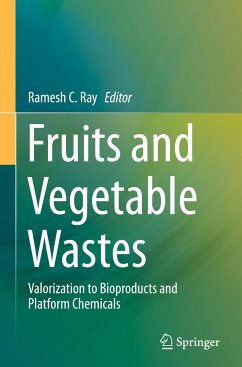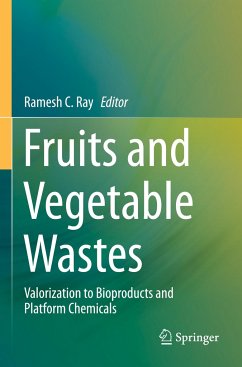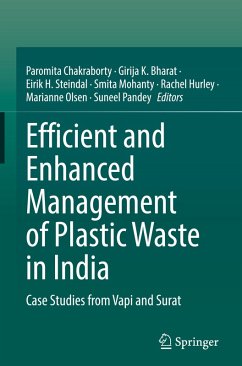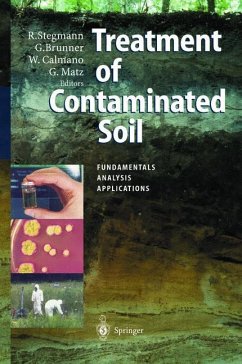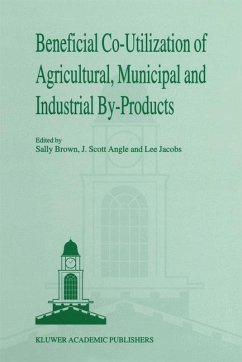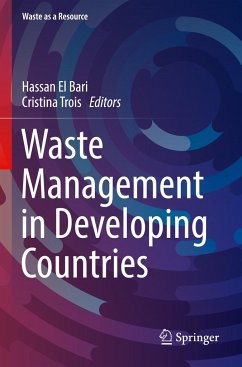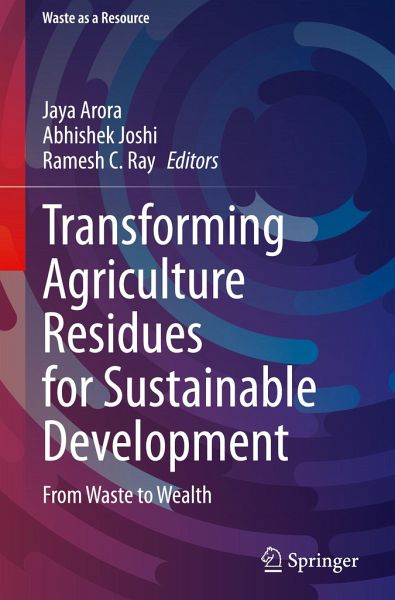
Transforming Agriculture Residues for Sustainable Development
From Waste to Wealth
Herausgegeben: Arora, Jaya; Joshi, Abhishek; Ray, Ramesh C.

PAYBACK Punkte
57 °P sammeln!
Agricultural residues are a significant waste product of modern agriculture. These residues mainly include crop residues, industrial processing wastes, livestock wastes, and fruit and vegetable wastes and are usually left to decompose, leading to environmental degradation and health hazards. However, with the growing demand for sustainable agriculture practices, there is a need to find innovative ways to utilize these residues. Transforming Agriculture Residues for Sustainable Development: From Waste to Wealth comprehensively explores the potential of agriculture waste valorization, showcasing...
Agricultural residues are a significant waste product of modern agriculture. These residues mainly include crop residues, industrial processing wastes, livestock wastes, and fruit and vegetable wastes and are usually left to decompose, leading to environmental degradation and health hazards. However, with the growing demand for sustainable agriculture practices, there is a need to find innovative ways to utilize these residues. Transforming Agriculture Residues for Sustainable Development: From Waste to Wealth comprehensively explores the potential of agriculture waste valorization, showcasing innovative technologies and applications that meet the challenges of converting waste materials into valuable resources. By addressing various aspects of the agricultural waste-to-wealth paradigm, this invaluable guide will be helpful for researchers, policymakers, and industry professionals seeking sustainable solutions for agricultural residue management and the transition to a more circular economy.




